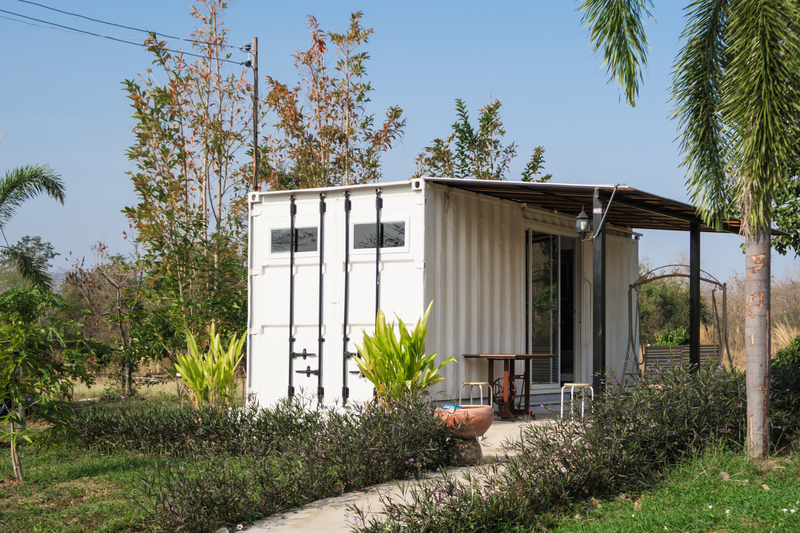Reduce Your Expenses with These Bulky Waste Item Disposal Tricks
Disposing of hefty and oversized waste can be a daunting task for homeowners and businesses alike. With increasing charges for landfill and local council collections, the cost of bulky rubbish removal continues to rise. Fortunately, there are smart ways to reduce your expenses with bulky waste item disposal. In this comprehensive guide, we'll explore savvy, eco-friendly, and budget-friendly tricks to help you manage large waste items without breaking the bank.
Understanding Bulky Waste and Its Disposal Challenges
Bulky waste typically refers to large items that cannot be disposed of through standard household rubbish or recycling collections. This includes the likes of furniture, old appliances (such as fridges or washing machines), carpets, mattresses, and garden equipment. These items pose unique disposal challenges because they are:
- Heavy and awkward to move
- Often unsuitable for landfill without special procedures
- Potentially recyclable or reusable, but only if processed correctly
- Costly to dispose of via council or private waste collection services

Why Save On Bulky Waste Item Removal?
The average local council now charges ?20-?60 per bulky waste item for collection, with costs often rising for each additional piece. For businesses or households undergoing renovations or clear-outs, this can pile on hefty expenses. By finding creative disposal methods, you can cut these costs and contribute to environmental sustainability.
Top Bulky Waste Disposal Strategies to Slash Your Costs
1. Sell or Donate Items in Working Condition
Before handing over cash for bulky item collection, ask yourself: could someone else use this? Many items--like sofas, wardrobes, and home gym equipment--retain value or function even when they're no longer needed by the original owner.
- Sell Online: Platforms like Gumtree, Facebook Marketplace, Freecycle, and eBay make it easy to list items locally. Many buyers are willing to collect items themselves, saving you transport and disposal fees.
- Donate to Charities: Charity shops, shelters, and furniture banks often accept large items. Some charities even offer free collection, which is a double savings.
- Offer for Free: If time is tight, listing your item as "free to collector" usually results in quick removal. Websites such as Freegle are excellent spots to connect your unwanted bulky items with new owners.
2. Break Down Large Items Yourself
Disposal fees often correlate with the size of the item. To save money on bulky waste removal, reduce the volume yourself.
- Disassemble furniture (beds, desks, wardrobes) to fit it into normal waste bins or smaller load vehicles.
- Cut carpets and underlay into manageable strips for easier transport and cheaper disposal.
- Use basic tools to remove non-recyclable attachments, separating wood, metal, and fabric for appropriate disposal streams.
3. Make Use of Local Authority Free Drop-Off Services
Many local councils operate Household Waste Recycling Centres (HWRC)--also known as civic amenity sites--where residents can drop off bulky items for free or at a reduced price.
- Find Your Nearest HWRC: Search your council's website for details, including opening hours and restrictions. Some centres require proof of address, so take ID with you.
- Check Accepted Items: Most HWRCs take sofas, white goods, mattresses, and garden waste. Hazardous waste may require special handling, so check guidelines first.
- Plan Ahead: Smaller vehicles and trailers are often allowed, but transit vans might be refused without pre-booking or a waste carrier licence.
4. Participate in Community Collection Days
Some towns and neighbourhoods organise annual bulky waste amnesties or community clean-up events. These are the ideal moment to dispose of large items for free or at a substantial discount.
- Monitor your local council and community noticeboards for upcoming collection days.
- Some events run seasonally, especially after holidays or in spring.
- Be ready in advance--spaces fill up quickly, and you may need to register your items ahead of time.
5. Hire a Skip or a Man-and-Van Service with Friends or Neighbours
Hiring a skip or a private man-and-van junk removal service is a common go-to option for quick clearance, but prices can be steep if handled alone. Sharing the cost with neighbours or friends in your street can make this choice much more affordable.
- Get a quote for the exact volume you need and compare prices across providers.
- Work together to fill the skip efficiently, making sure everyone understands what can and can't be included.
- Always use licensed and insured waste carriers to avoid fly-tipping fines and environmental harm.
6. Check for Manufacturer or Retailer Take-Back Schemes
Major retailers and appliance brands now offer take-back and recycling schemes for old furniture and white goods.
- Appliance Delivery: When buying a new fridge, oven, or washing machine, ask the retailer if they'll collect and recycle your old item as part of the delivery.
- Furniture Shops: Larger chains (like DFS, IKEA, or B&Q) sometimes offer removal services--often free, subsidised, or for a nominal fee.
- Eco-friendliness: These programs typically partner with recycling companies so your items may avoid landfill entirely.
7. Utilise Social Media Groups and Apps
Reduce your bulky waste disposal expenses by leveraging the power of community through technology.
- Local Facebook groups are great for offering or swapping bulky items in your neighbourhood. Often, someone will collect the item the same day.
- Apps like Nextdoor connect you with nearby residents who might want or need the item you're dumping.
- You'll save on collection fees and potentially make some pocket money, all while diverting waste from landfill.
8. Consider Upcycling or Repurposing for Home or Garden Use
With a little creativity, your trash can become someone else's treasure--or your own. Upcycling is not only budget-friendly but eco-friendly too:
- Wooden Furniture: Strip, paint, or sand down for chic home or garden pieces.
- Mattresses & Springs: Repurpose as insulation or creative garden fencing.
- Appliance Parts: Use old drum barrels from washing machines as firepits or planters.
Important Eco-Friendly and Legal Considerations
While saving money on bulky waste disposal is important, it's essential to do so legally and responsibly.
- Avoid fly-tipping: Never abandon items in public spaces or countryside. Illegal dumping is subject to heavy fines and criminal prosecution.
- Use licensed carriers: Whether using a man-and-van or collection service, always check their licence number on the Environment Agency Register.
- Sort and label: Separate recyclable and non-recyclable materials to ensure your waste is processed in an eco-friendly manner.
Summary of Cost-Saving Bulky Waste & Rubbish Removal Tips
- *Sell, donate, or give away items first.*
- *Break down large items to fit standard bins or reduce disposal costs.*
- *Use local recycling centres for free or low-cost drop-off.*
- *Participate in community collection/clean-up days.*
- *Split disposal costs with friends or neighbours for shared services.*
- *Explore take-back options when purchasing new appliances or furniture.*
- *Leverage social media and community apps for quick, free removal.*
- *Get creative--upcycle or reuse items at home or in your garden.*
- *Always act within environmental and legal guidelines.

Frequently Asked Questions: Affordable Bulky Waste Disposal
How can I get rid of appliances or white goods for free or cheap?
You can often dispose of old appliances (fridges, ovens, washing machines) via council recycling centres without charge. Check if your retailer offers a take-back scheme when you buy new equipment, and don't forget to ask local charities if they collect working items.
What are some free or low-cost furniture removal options?
Selling or giving away unwanted furniture through local selling sites, social media, or charity shops is the best free option. If these don't work, community clean-up days and HWRC drop-off points are cost-effective alternatives.
What should I do if professional bulky waste removal is too expensive?
Try collaborating with neighbours to share skip or man-and-van fees, or dismantle items to fit them into your household waste allowance. Always check your council's specific policies--some allowances vary by area.
Are there any risks in hiring cheap, unlicensed waste carriers?
Yes. Using unregistered waste removal firms can result in fines if your rubbish is dumped illegally. Always ask for (and check) a waste carrier licence number.
Can I dispose of bulky waste through my regular bin?
Only if you break down the item to the accepted size and volume of your household wheelie bin, and your council allows it. Policies vary, so check locally before dismantling.
Conclusion: Cut Costs and Waste Wisely
Bulky waste disposal doesn't have to drain your wallet. By adopting these cost-saving tricks for large rubbish items, you'll not only save money but also help protect the environment. Always prioritise giving reusable items a second life, dismantle for easier handling, and utilise council and community schemes for the best value. Smart disposal of bulky waste starts with creative thinking, responsible action, and a keen eye for savings. Next time you face a mountain of oversized junk, try these strategies to keep both your costs and your environmental impact to a minimum.
Save money, save space, and support a cleaner world--one bulky item at a time!